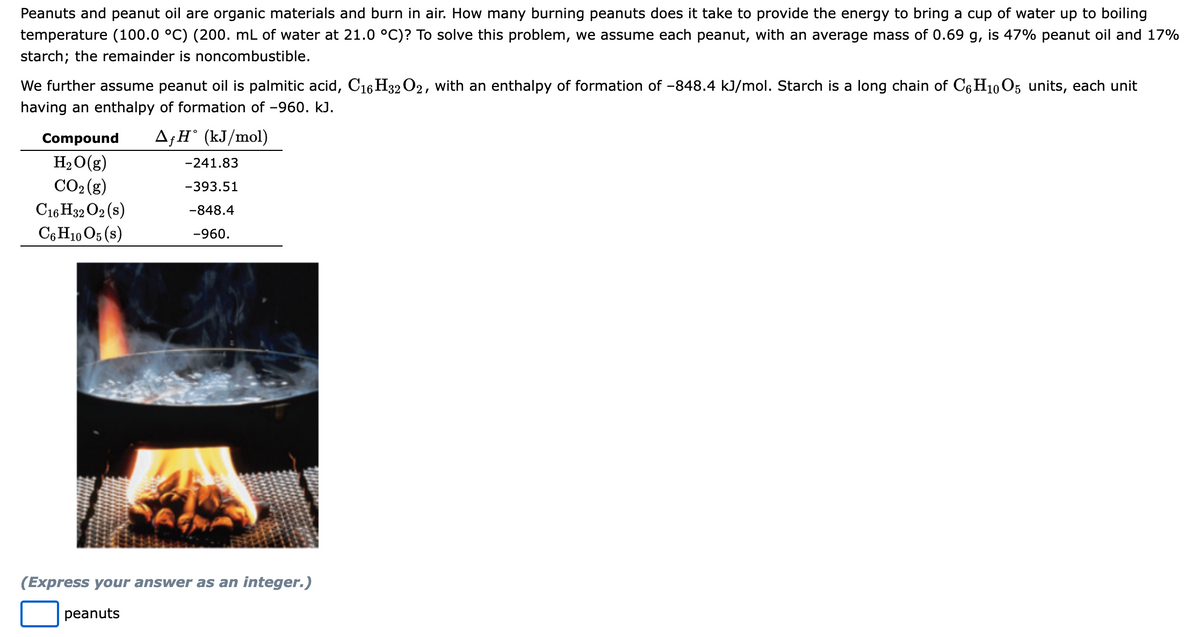Peanuts and peanut oil are organic materials and burn in air. How many burning peanuts does it take to provide the energy to bring a cup of water up to boiling. temperature (100.0 °C) (200. mL of water at 21.0 °C)? To solve this problem, we assume each peanut, with an average mass of 0.69 g, is 47% peanut oil and 17% starch; the remainder is noncombustible. We further assume peanut oil is palmitic acid, C16H32 O2, with an enthalpy of formation of -848.4 kJ/mol. Starch is a long chain of C6H10O5 units, each unit having an enthalpy of formation of -960. kJ. A, H (kJ/mol) Compound H₂O(g) CO₂ (g) C16H32 O2 (s) C6H10O5 (s) -241.83 -393.51 -848.4 -960.
Thermochemistry
Thermochemistry can be considered as a branch of thermodynamics that deals with the connections between warmth, work, and various types of energy, formed because of different synthetic and actual cycles. Thermochemistry describes the energy changes that occur as a result of reactions or chemical changes in a substance.
Exergonic Reaction
The term exergonic is derived from the Greek word in which ‘ergon’ means work and exergonic means ‘work outside’. Exergonic reactions releases work energy. Exergonic reactions are different from exothermic reactions, the one that releases only heat energy during the course of the reaction. So, exothermic reaction is one type of exergonic reaction. Exergonic reaction releases work energy in different forms like heat, light or sound. For example, a glow stick releases light making that an exergonic reaction and not an exothermic reaction since no heat is released. Even endothermic reactions at very high temperature are exergonic.

Trending now
This is a popular solution!
Step by step
Solved in 8 steps with 8 images









